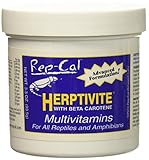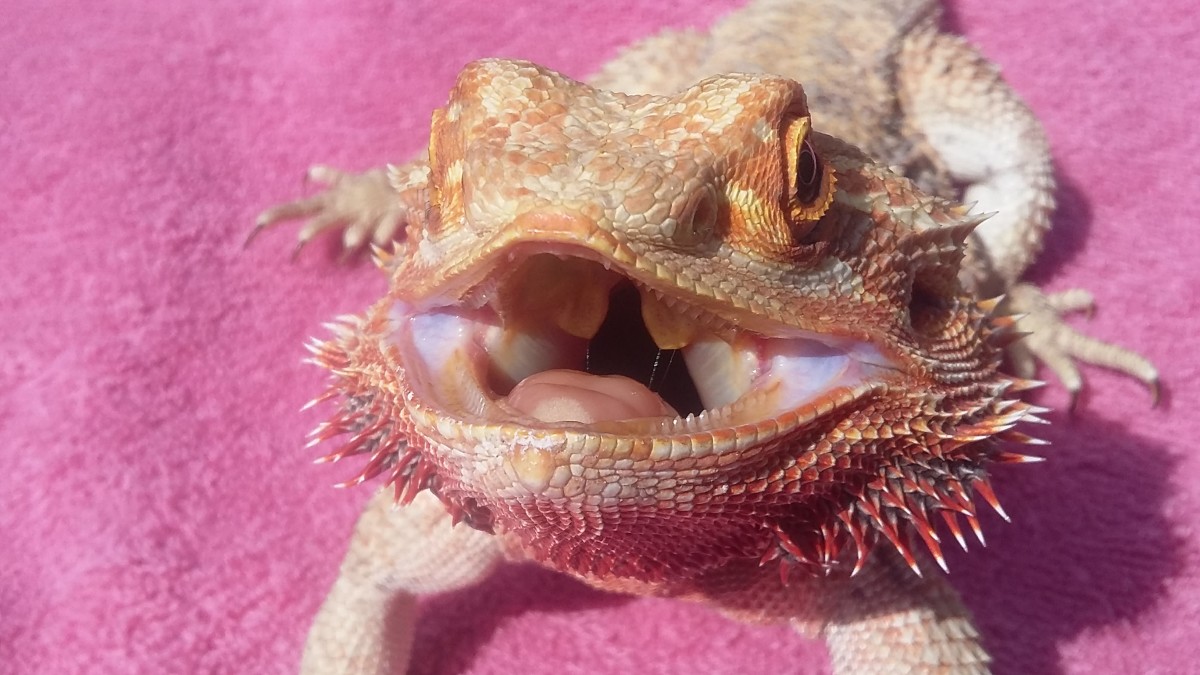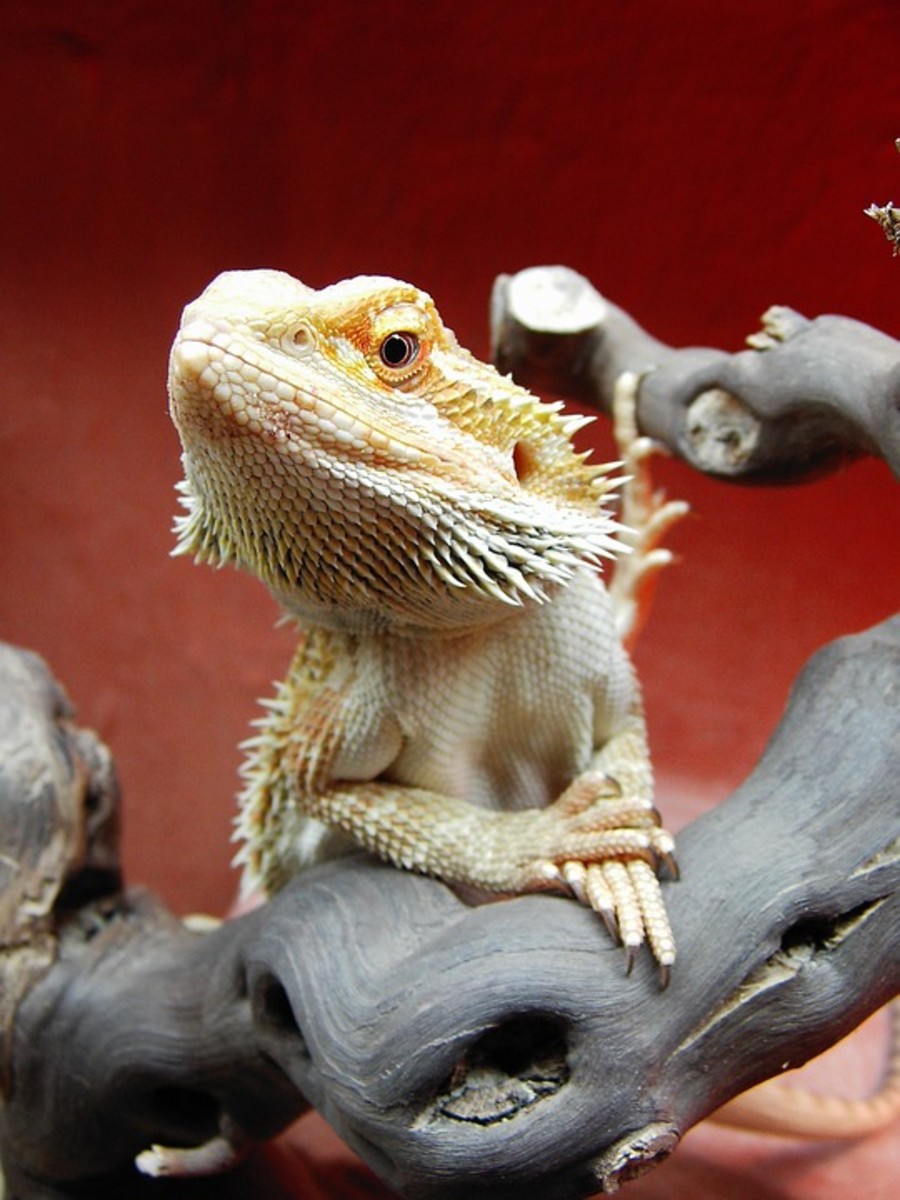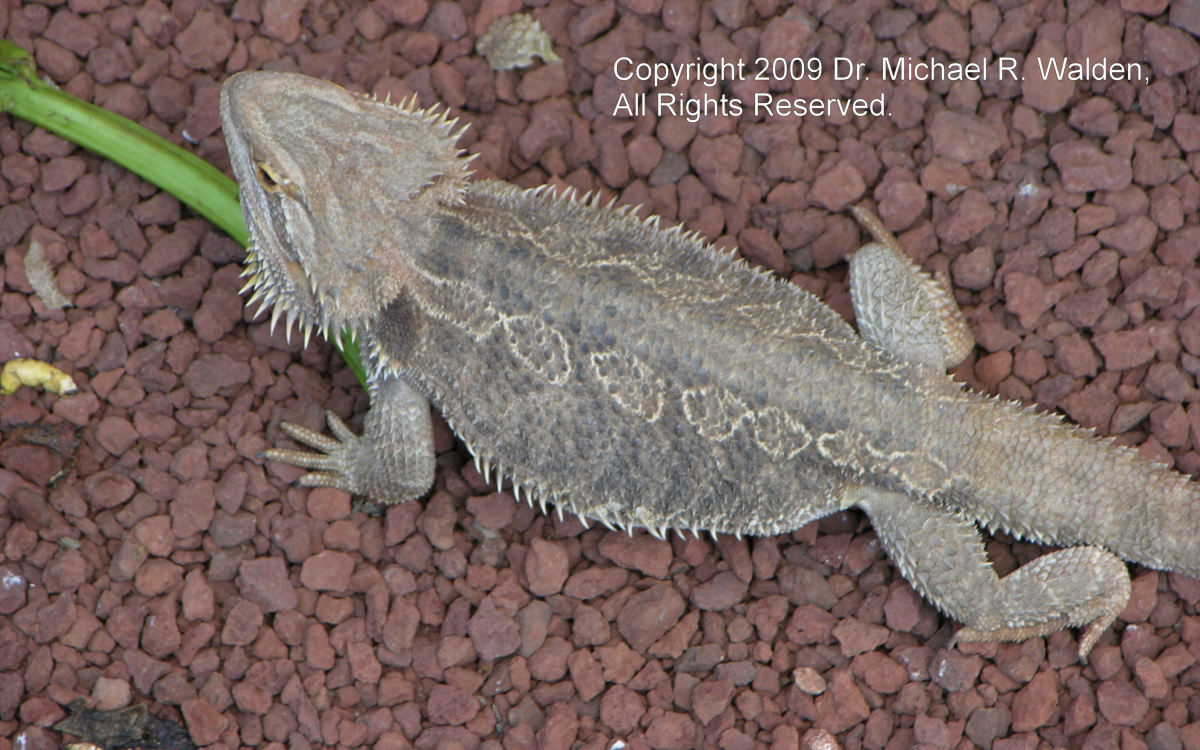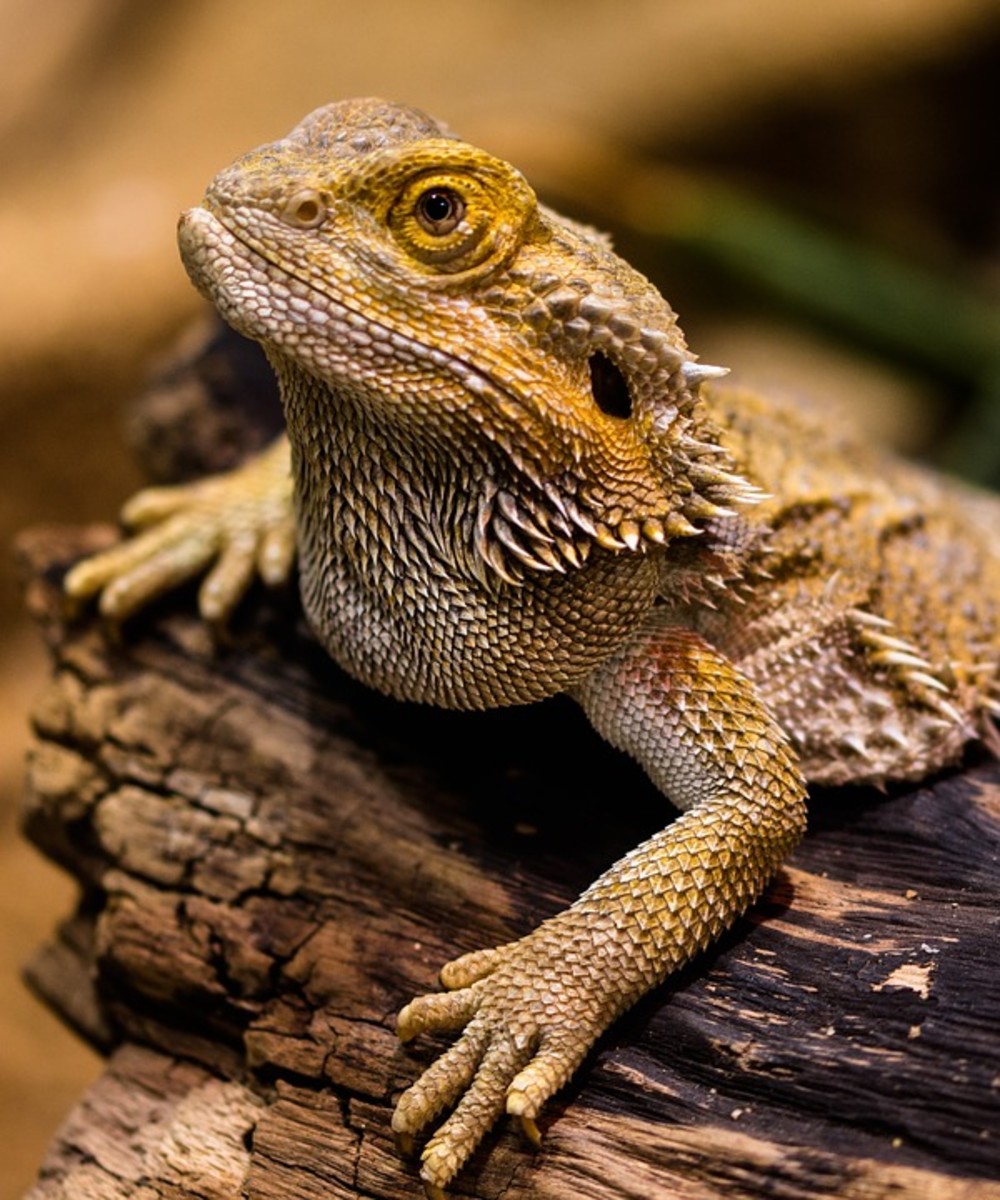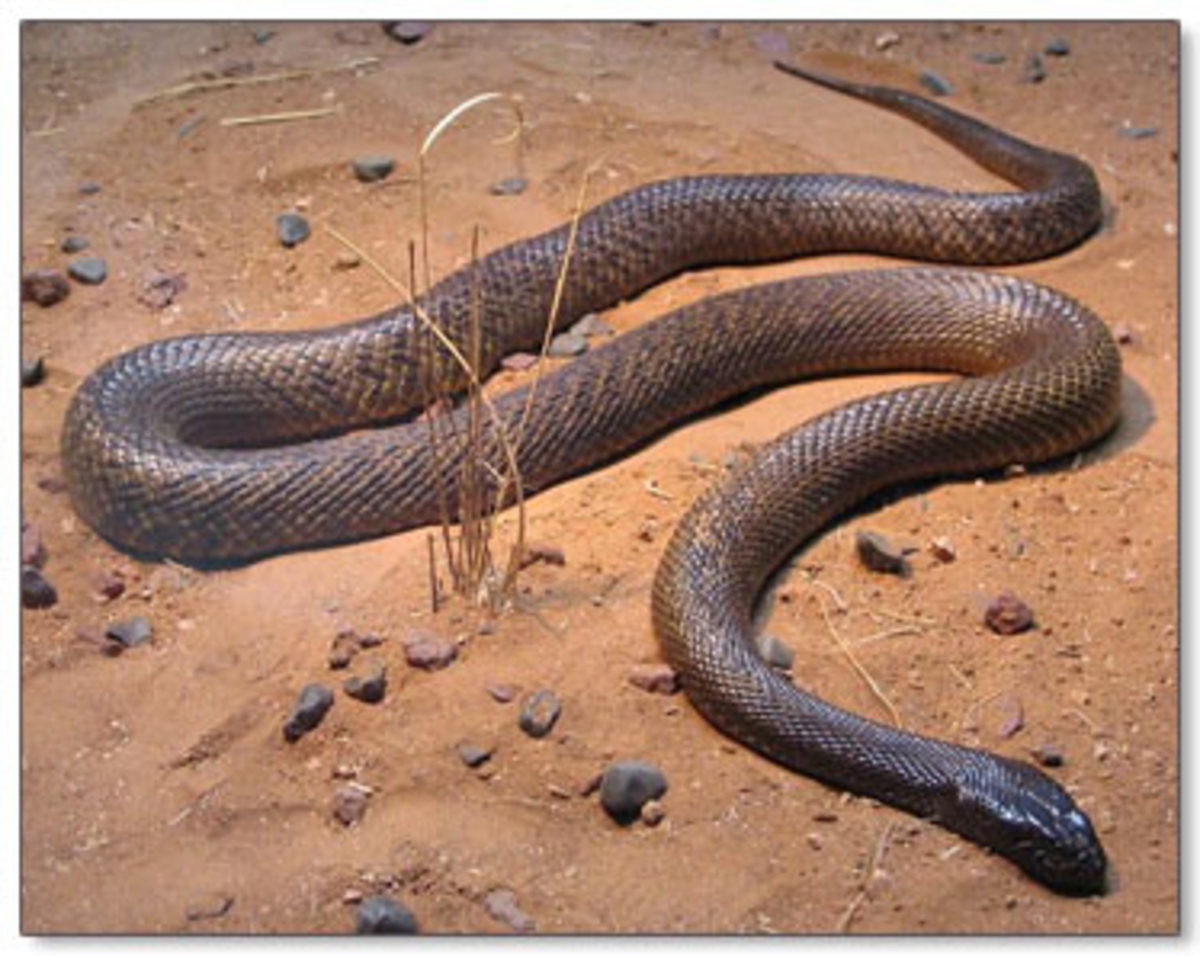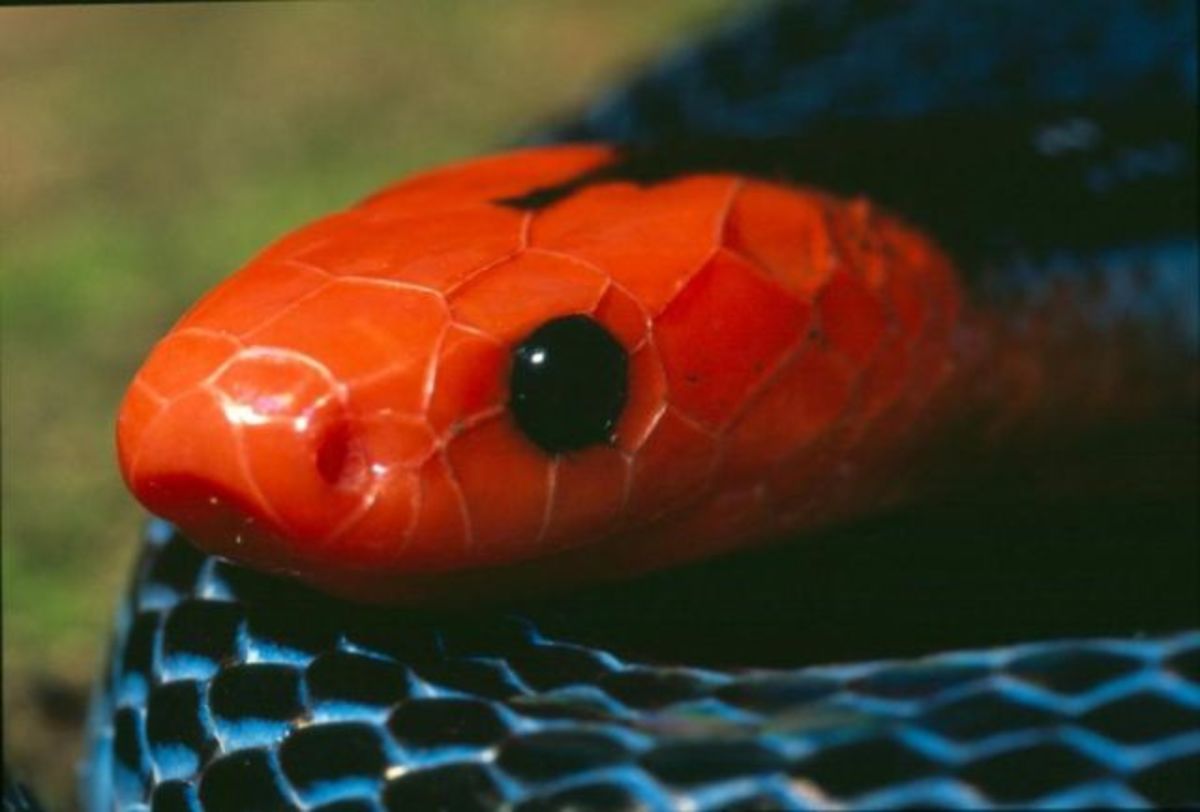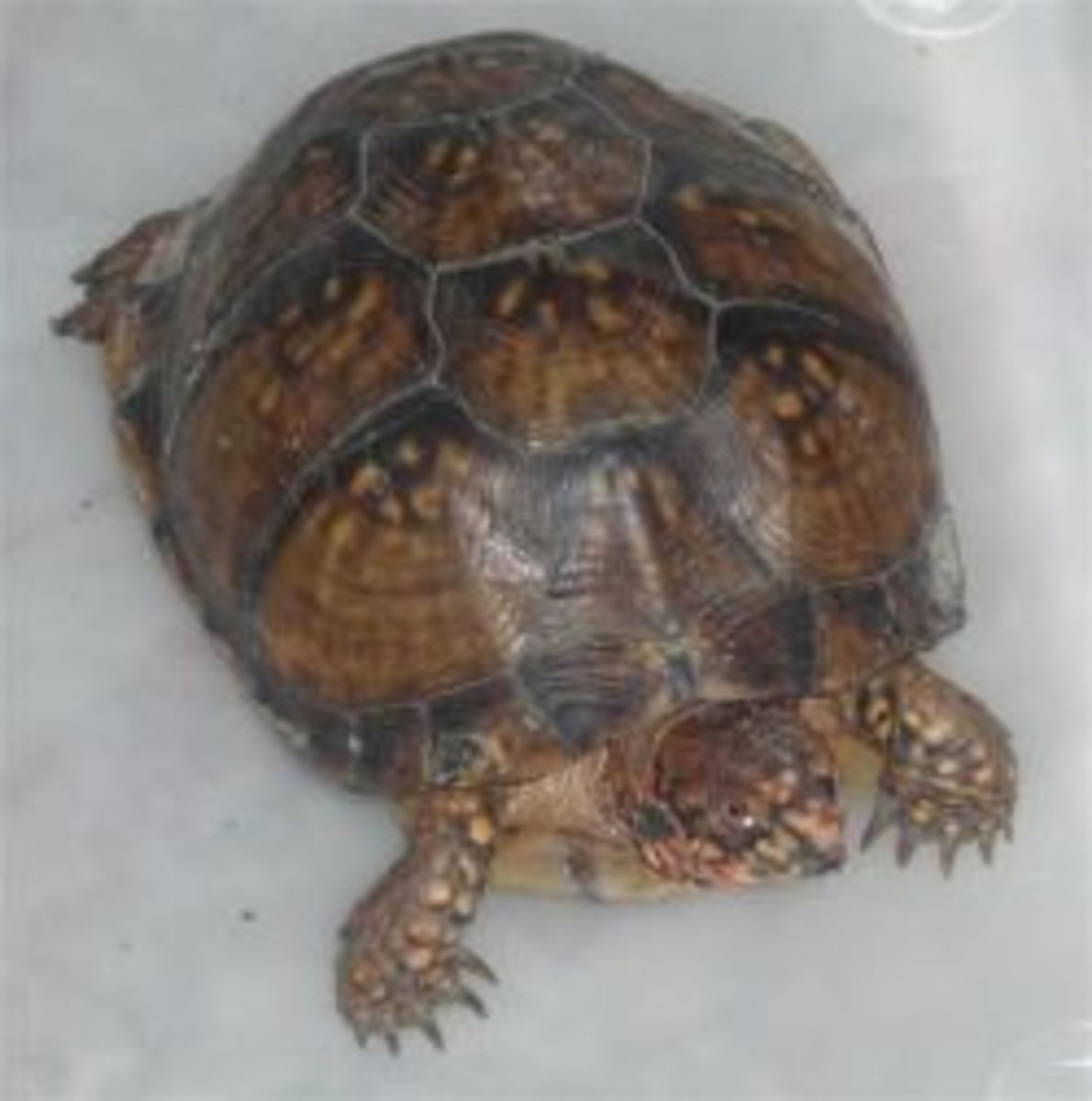Easy Bearded Dragon Diet Sheet
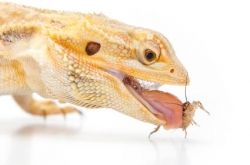
General bearded dragon care and feeding
If you're trying to figure what you should feed your bearded dragon, you've come to the right place. Below you'll find a complete bearded dragon diet list for easy reference. I've also included a section on supplement recommendations, nutrition, and feeding tips.
The cool thing about the bearded dragon is that it eats a wide variety of foods including other small animals and vegetables. Some of the best insects to feed your bearded dragon are brown crickets, wax and meal worms, and locusts. It's nice to spice up your pet's diet by throwing in an exotic insect for them here and there.
Be sure to feed your pet good quality food. Otherwise they won't get the nutrition they need. As an example, insects should not be dehydrated, instead they should be fresh and plum. This ensures that they are still full of the vitamins and minerals necessary for your bearded dragon's health. Read down below for tips on how to keep your insects alive and hydrated longer.
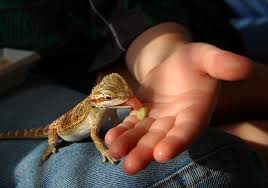
Bearded Dragon diet sheet
An easy to reference bearded dragon diet chart
*Feel free to print out this bearded dragon diet sheet for quick reference
Leafy Green Vegetables for Bearded Dragons(Regular Consumption)
- Dandelion greens: Good source of calcium. Remove stems, finely chop.
- Collard greens: Good source of calcium. Remove stems, finely chop.
- Endive: Good source of calcium. Finely chop.
- Watercress: High in calcium.
- Mustard greens: High in calcium, some goitrogens. Remove stems, finely chop.
- Chicory: High in calcium. Finely chop.
- Turnip greens: Very high in calcium. Also high in goitrogens and oxalates. Remove stems, finely chop.
Vegetables for Bearded Dragons (Regular Consumption)
- Squash (acorn, kabocha, and butternut): High in fiber. Remove rind, discard core, finely chop.
- Green beans: Chop
- Okra: Chop.
- Parsnip: Good source of fiber. Peel, shred.
- Snap peas: Chop.
- Sweet potato: Peel and finely chop.
- Yucca: Peel and finely chop.
Insects for Bearded Dragons (Regular Consumption)
- crickets
- super worms
- roaches
- phoenix worms
- horn worms
- silk worms
Fruits for Bearded Dragons (Regular Consumption)
- Prickly pear: High in calcium. Chop and shred.
- Mango: Peel, core, and Chop.
- Papaya: Great source of fiber. Peel, throw away seeds, chop.
DO NOT or rarely feed your Bearded Dragon
- corn: rarely
- lettuce: do not, will cause diarrhea
- spinach: never
- meal worms: never
- cabbage:rarely
- anything treated with pesticides: NEVER
- mice: never
How much do you feed a bearded dragon?
This depends! An adult bearded dragon will eat around 50 crickets (or similar sized bugs) per week as well as vegetables. Eighty percent of an adult lizard's diet should be vegetables. Young lizards on the other hand should eat a diet of mainly insects (about 80%) and they should be live food. Down below you'll find a list of acceptable vegetables for your bearded dragon.
What not to feed your bearded dragon
A bearded dragon should not eat citric fruit, iceberg lettuce, spinach, cabbage, or tomato.
You can also buy pre-made pellets to feed your bearded dragon but you shouldn't rely solely on this. Use it as a sort of diet supplement.
Bearded dragon pellets
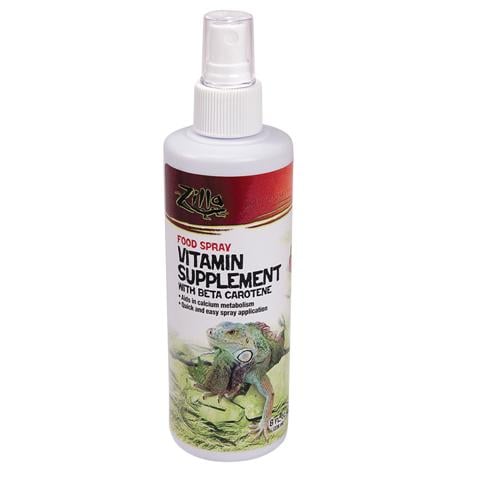
Bearded Dragon Nutrition
No one knows exactly what the nutritional composition is for the "perfect" diet of a Bearded Dragon. Our best guess comes from herpetologists studying them in the wild and determining which nutrients and supplements they are getting the most of in their natural habitats. That said, there are supplements that are generally recommended by researchers for bearded dragons to live as long and healthy as possible. The most important are:
Calcium: Comes in a powder which you can use to coat feeder insects with. Usually as powdered calcium carbonate or calcium gluconate. For adults, calcium supplements sprinkled on food 3 to 5 times per week. Younger dragons need calcium supplementation daily.
Vitamin D3: Supplementing with vitamin d depends on the type of UV bulb you use. If a single mercury vapor UVB bulb is used you may not need to supplement with vitamin D, though for juvenile or pregnant bearded dragons you should still supplement with vitamin D.






